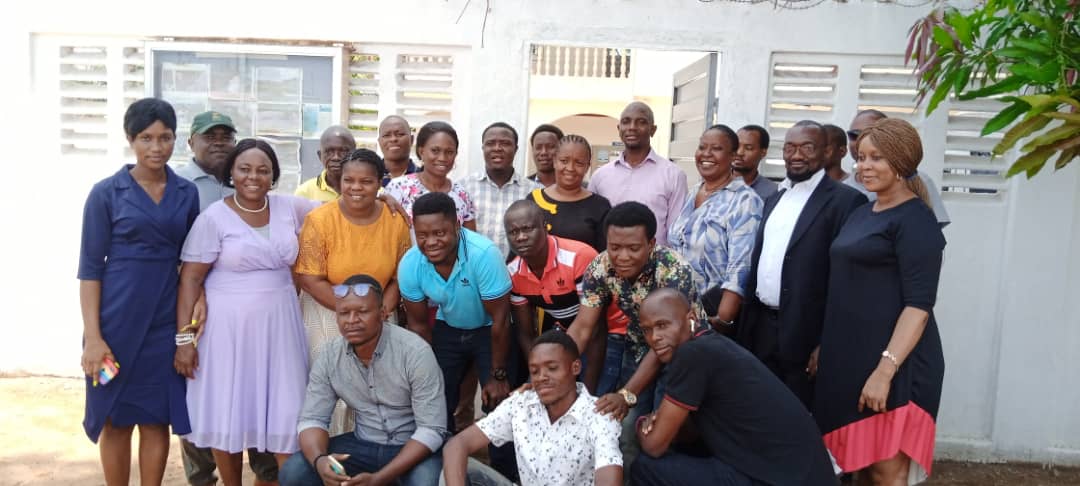By ACC Communication Desk Bo
FREETOWN, Apr. 26 (232news.com) – “If the agriculture sector is inundated with corruption, the country’s aspiration of achieving food self sufficiency will be unattainable,” says Momodu Sittar, Southern Regional Manager of the Anti-Corruption Commission (ACC). He made this statement in a sensitization meeting organized for staff of the Agricultural Value Chain Project (AVDP) by the Commission’s Public Education Unit in the region. The meeting was held at the AVDP Conference Room, Torwama Road, Bo, on Tuesday 12th April 2022.
Mr. Sittar underscored the significance of the engagement, noting that it was in tandem with the Commission’s strategic approach to ensure all pillars of integrity become more viable and productive for the good of all. He drew the attention of his audience to the Commission’s stance to combat misuse of public and donor resources in a bid to alleviate the suffering of citizens.
Mr Sittar explained a number of offences enshrined in the Anti-Corruption Act 2008 as amended in 2019 and the legal consequences of any contravention. He admonished those who seek pleasure in wrecking havoc on the unsuspected masses to desist from such practices because it does not only rob them of their livelihood but dignity as well.
In his statement, ACC’s Senior Public Education Officer, Abdulai Saccoh, recognized that though the agriculture sector accounts for over 60% of the country’s labour force yet food production is low. He reminded employees of AVDP of their responsibility to ensure increase in agricultural productivity through mechanized farming and building the capacity of smallholder farmers.
Mr Saccoh said that corruption poses serious threat to the growth of the agriculture sector because it affects land title and tenure agreement, credit availability, quality of supplies and the development of agribusinesses. He said that the country can only feed itself when citizens do not allow corruption to flourish given that it reduces foreign direct and domestic investments, increases inequality and poverty, distorts and exploits public investments, reduces public revenues, distorts public spending and undermines growth and efficiency.
Public Education Officer, ACC, Yangie Deborah Sesay, said the meeting was part of the Commission’s continued effort to educate public sector workers on corruption and its adverse impacts in attaining sustainable growth. Miss Sesay said that public education, prevention and enforcement (through investigation and prosecution) are the three prong approaches employed by the ACC in fighting corruption in order to promote integrity, accountability and transparency in public sector institutions. She informed them of the various reporting platforms and the protection provided for informants and whistleblowers in the Anti-Corruption Act 2008 as amended in 2019.
The Acting Program Manager of AVDP, Bo Office, Tamba D. Kassoh, said it was a timely engagement, considering the number of beneficiaries they work with and the temptation staff are exposed to. Mr. Kassoh described the session as a learning curve which has not only broaden their understanding of issues of integrity and professional ethics but also serves as a guide in the execution of their duties. He assured the Commission of their commitment to build on the gains already achieved and promised to institute anti-corruption safeguards in the workplace.

